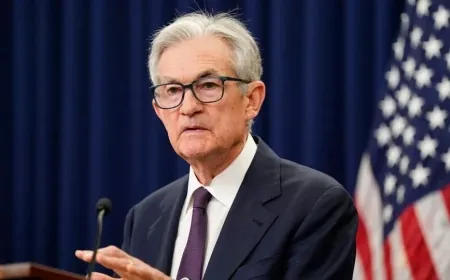Hindenburg's Actions Lead to $99 Billion Wealth Erosion Among Three Billionaires in 2023
Hindenburg Research's targeting of Adani, Dorsey, and Icahn triggers substantial wealth erosion among top billionaires. Market impact and strategic short-selling gains examined.

Key Heighlights
-
Billionaires' Wealth Dips: Hindenburg's targeting of Adani, Dorsey, and Icahn leads to significant wealth decline, with Adani's $57 billion loss topping the list.
-
Markets Shake: Hindenburg's reports not only hit personal fortunes but also cause a massive $173 billion market cap drop in firms tied to these billionaires.
-
Hindenburg's Limited Gains: Despite major losses, Hindenburg's gains remain modest at around $56 million, showcasing the intricate art of short-selling timing.
In a year marked by financial upheavals, the spotlight is on Hindenburg Research, a prominent short-selling entity, for its pivotal role in triggering substantial wealth declines for three of the world's wealthiest individuals.
The list of affected billionaires reads like a who's who of global business: Gautam Adani, the Indian magnate; Jack Dorsey, the brain behind Twitter and Block; and the legendary activist investor Carl Icahn. Their fortunes have all taken a hit, attributed to Hindenburg's strategic bets against their conglomerates.
At the forefront of Hindenburg's targeting spree is Gautam Adani, whose wealth has plunged by an eye-watering $57 billion since January. This drastic erosion can be traced back to Hindenburg's damning report, which alleged Adani's involvement in what they termed "the largest con in corporate history." This report triggered a domino effect, leading to substantial value erosion across Adani's publicly-listed companies.
While not as staggering as Adani's losses, Jack Dorsey's personal wealth took a relatively modest hit of $530 million. Hindenburg's critical focus was on Block, a company co-founded by Dorsey. Their scrutiny, however, was enough to create a noticeable dent in his financial standing.
The most profound decline among the trio was witnessed in the fortune of Carl Icahn. Hindenburg's May exposé accused Icahn of employing intricate "Ponzi-like structures" to deceive investors. The result? A staggering loss of almost $16 billion, signaling a seismic shift in his net worth.
The ripples of Hindenburg's reports didn't just affect the billionaires' pockets; they reverberated across the markets. On a single Friday, Icahn Enterprises' stock plummeted by a staggering 23%, prompted by a decision to cut shareholder payouts. Icahn himself attributed this decision to Hindenburg's "misleading and self-serving" report. This single-day market turbulence saw Icahn's net worth plummet from $10.5 billion to $8 billion, as reported by Bloomberg's index.
Hindenburg's track record is one of making bold predictions, often with substantial impact. This year alone, their incisive analysis has erased a staggering $173 billion from the market capitalization of the publicly-listed companies associated with the targeted billionaires. The lion's share of these losses was absorbed by the companies under the Adani Group umbrella, a conglomerate of diverse industries.
Interestingly, while Hindenburg's moves made waves, the financial gains for the short-selling entity were relatively modest. According to data from S3 Partners, a leading financial analytics firm, Hindenburg and its founder, Nate Anderson, managed a relatively modest profit. It's estimated that their precise timing would have earned them around $56 million from their position against Icahn, underscoring the nuanced art of short-selling in volatile markets.
Also Read: Adani Ports Questions Deloitte's Exit Amid Financial Transparency Debate
































































